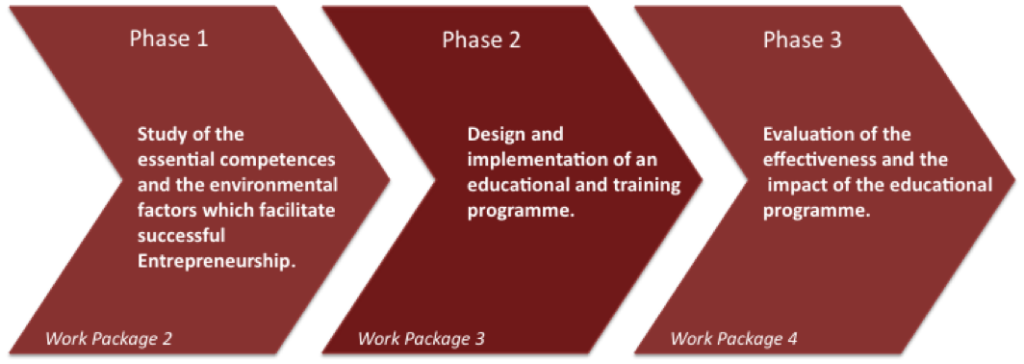The women entrepreneurs’ education and training programme has been developed to enhance the capacities of early stage women entrepreneurs and increase the success of their overall entrepreneurial performance.
The programme provides learners with multiple learning paths customized to their organizational needs and individual competencies. The course, which has been created in a blended learning model, consists of three face-to-face kick meetings in each country and three online units. The content refers to individual learning goals:
Introduction: Assessing entrepreneurial competences and choose courses.
Courses: We provide five courses -How to successfully overcome challenges to effective business performance.
Networking & Reflection:Parallel to these online courses there will be a networking and reflection unit



